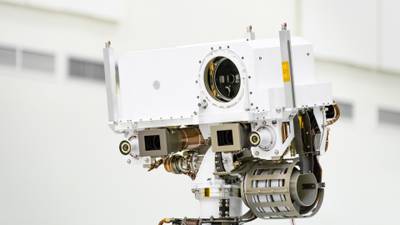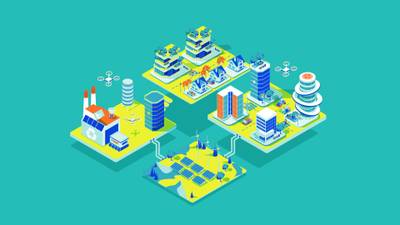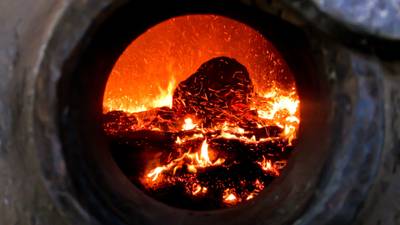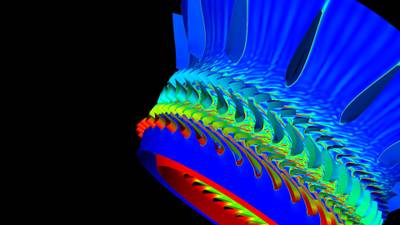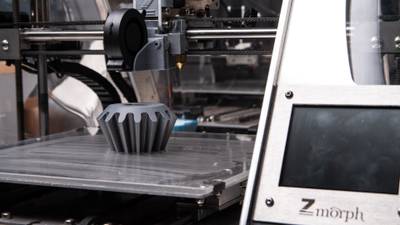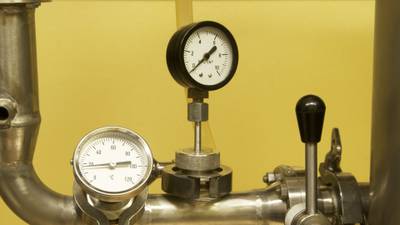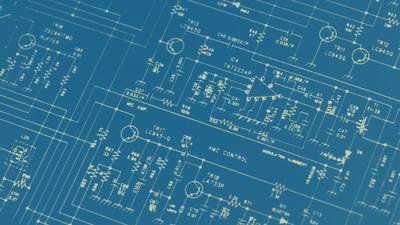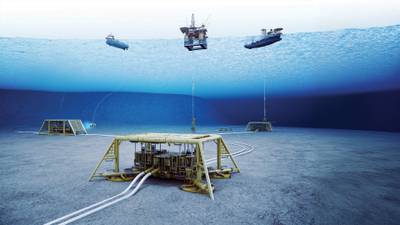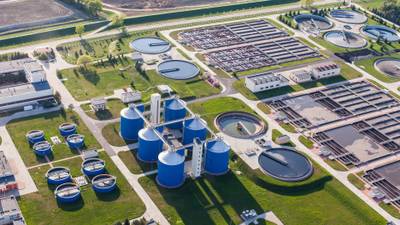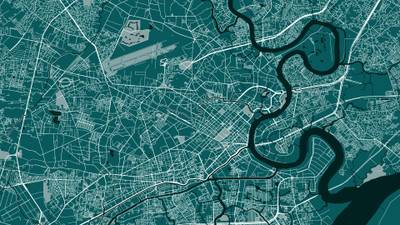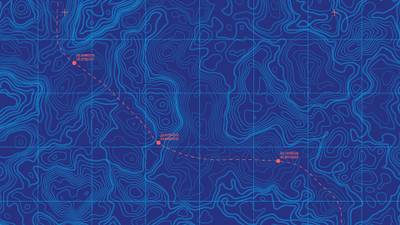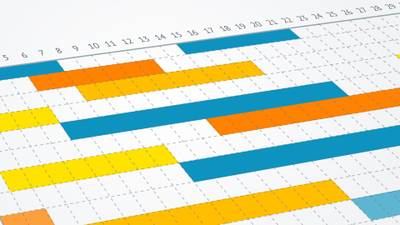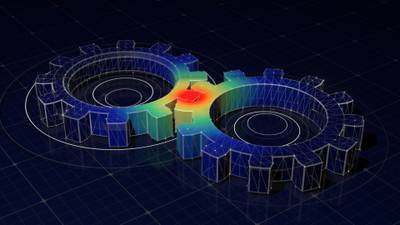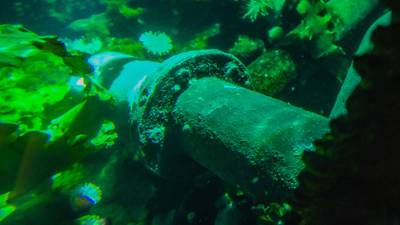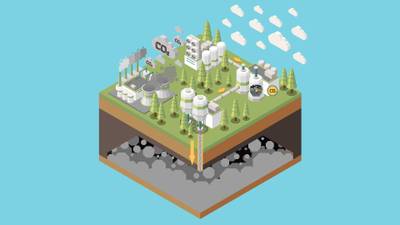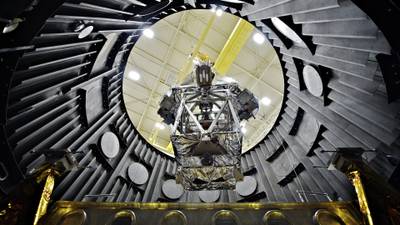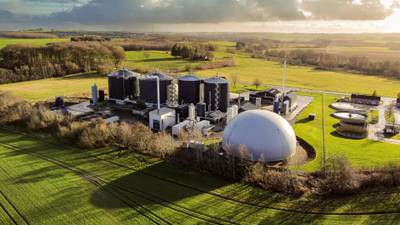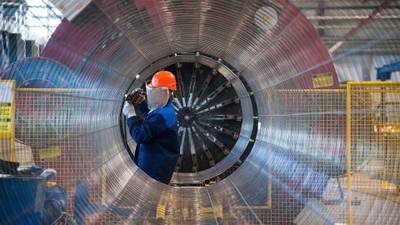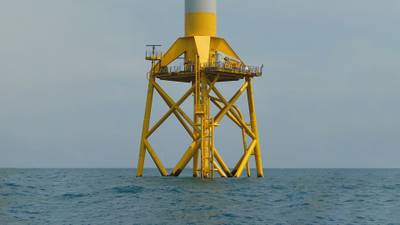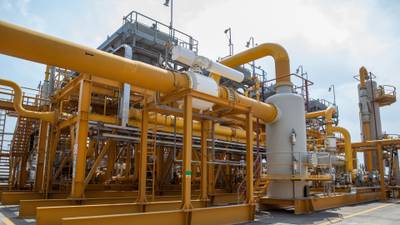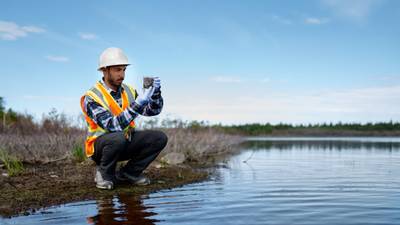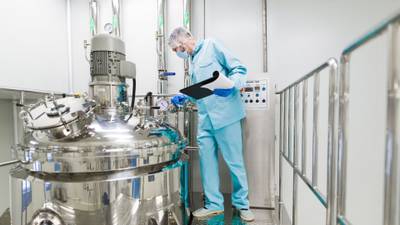Join a biorefinery course you can study flexibly, 100% online.
Learn to make manufacturing processes more sustainable, and move away from reliance on fossil fuels.
Develop your skills in biorefinery and sustainability with guidance from expert chemical engineers, academics, and industry.
In this Masters-level online short course, you’ll study how we produce essential chemicals and fuels from renewable resources, including biomass, organic waste, and carbon dioxide.
You’ll build advanced knowledge of biorefinery processes and learn to develop and implement strategies to improve the sustainability of processes.
You’ll examine:
- the theory and practical application of technologies and methods used in biorefinery processes
- the chemical principles involved, as well as kinetics, mass and energy balances
- advanced concepts to improve the sustainability of processes
- the challenges involved in creating sustainable process methods.
You’ll also build your skills in outreach, so you can talk to diverse audiences about the relevance and impact of biotechnology with confidence.
Who can join this online biorefinery course?
This distance learning course is ideal for:
- graduates and professionals in engineering and scientific disciplines who want to move into the sustainability and biorefinery sectors
- chemical manufacturing businesses seeking to enhance employee awareness and skills in biorefinery processes to improve sustainability
- academics interested in developing programmes in biorefinery and sustainability for engineering applications.

Build credits towards a Masters degree
This online course is part of:
You can use the credits you earn with this short course towards this MSc qualification.
What you’ll study
In this course, you’ll learn about the production of biofuels, chemicals, and materials using renewable and sustainable feedstocks.
You’ll study the chemical conversions that use biomass, biomass-derived waste, and carbon dioxide as feedstock, as an alternative to the fossil resources used in conventional refinery processes.
You’ll learn about various approaches to improve the sustainability of processes, based on process-intensification strategies.
You’ll develop the skills required to model, analyse, and design these systems.
The course is based on concepts of chemical stoichiometry, reaction kinetics, mass and energy balances.
Topics you’ll study
You’ll cover topics including:
- fundamental chemistry and engineering concepts for biorefinery: chemistry, reaction kinetics, mass balances, thermodynamics
- biofuels from lignocellulose: pre-treatment/deconstruction, sugar, bio-oils and lignin-derived fuels
- sugar and lignin-derived chemicals and materials
- comparison of petro- and bio-refineries
- strategies to design more sustainable processes
- the role of catalysts in sustainability, and
- alternative energy sources: plasma, ultrasounds, microwaves.
By the end of this course, you’ll be able to...
-
Apply the fundamentals of chemistry, reaction kinetics, mass and energy balances to biorefinery processes.
-
Understand the role of the main stages and unit operations in selected biorefinery processes.
-
Evaluate the sustainability of biorefinery processes.
-
Compare biorefinery with conventional refinery processes, identifying the benefits and challenges.
-
Identify and quantify opportunities for innovative biorefinery processes.
-
Identify and quantify opportunities to minimise the environmental impact of biorefinery processes.
Choose the University of Aberdeen for sustainable manufacturing courses

Fits around full-time work
This online course fits around work, with flexible hours and 24/7 study access.

You’re in expert hands
We’ve been training world-class engineers for over 100 years and delivering online learning for decades.

20% alumni discount
University of Aberdeen alumni get 20% off fees for this online course.
How you’ll study
Online learning
This distance-learning biorefinery course is delivered flexibly, 100% online.
You can learn with us anywhere, no student visa required, and set your study hours to suit you.
Your teaching
Teaching is delivered through MyAberdeen, our online Virtual Learning Environment (VLE). It holds all the materials, tools and support you’ll need in your studies. Take a look around MyAberdeen.
You can access your learning materials on computer, smartphone and laptop, 24 hours a day. You’ll find a range of resources available, including:
- video lectures
- online tutorials
- reading materials
- discussion boards with your tutors and peers
- online access to our award-winning Sir Duncan Rice Library.
Your tutors
This course is delivered by our School of Engineering.
You’ll learn from academics who are experts and active researchers in chemical engineering and biorefinery.
Industry input
This course is part of MSc in Sustainable Product, Process and Energy Engineering. This MSc features an Industrial Advisory Board, formed by representatives of companies in the manufacturing sector, ensuring your learning content is current and addresses industry needs.
This course is assessed online.
You’ll be assessed throughout your studies via your coursework.
The course totals approximately 150 hours of study and assessment time. That’s around 10 – 15 hours per week.
This is an indicative guide to the time required for a typical student at this level to achieve the learning outcomes. This includes time for independent study, as well as teaching and assessments.
You can largely set your own study hours each week to cover the materials. MyAberdeen is available 24/7, so you can log in and study when it suits you.
Activities with deadlines
There will be some activities scheduled at fixed times, such as assessments with deadlines, or meetings with your tutor. But otherwise, you can access and work through the course at your convenience.
Our first-class support structure will ensure that you aren’t alone in your studies. You’ll have contact with your coordinator via email, MyAberdeen and Microsoft Teams. You can use social media and discussion boards to chat with your fellow students too.
We provide a wide range of services to support you in your studies and beyond:
- Careers and Employability Service
- Disability support
- IT support
- Library support
- Student Support Service – help with finances, wellbeing, and non-academic issues
- Student Learning Service – study skills support and advice
- Aberdeen University Students’ Association (AUSA) – run by students for students
- Toolkit – clever apps and free training that can make your study life easier
Wherever you are in the world, you’ll feel part of our very special Aberdeen learning community.
Your teaching team

Dr Ines Graca
Ines is a Chemical Engineer, and a Lecturer in Chemical Engineering at the University of Aberdeen. She holds a PhD in Chemical Engineering, and her research interests include catalysis and reaction engineering.
Ines has over 10 years’ experience in teaching and research on various chemical engineering topics related to biorefinery, including heterogeneous catalysis, biomass valorisation into fuels and chemicals, and plastic waste catalytic recycling into fuels and chemicals.
View Ines’ profile
Dr Alan McCue
Alan is a Chemist and a Senior Lecturer in the Department of Chemistry at the University of Aberdeen.
His research interests include the development of heterogeneous catalysts for a range of processes, with a focus on sustainable chemical production. This includes the production of biofuels and other products derived from biomass.
View Alan’s profileWhere this will take you
Towards a Masters
You’ll earn 15 credits at Masters level (SCQF Level 11) with this course. You can use these credits towards our online:
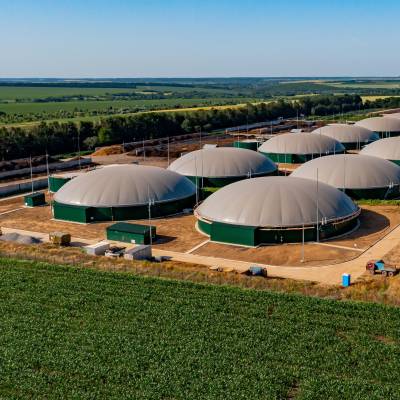
Masters in Sustainable Product, Process and Energy Engineering
Develop advanced skills in sustainability engineering. Study flexibly online and learn to make manufacturing processes more sustainable.
View MSc Sustainable Product, Process and Energy EngineeringCareers in sustainable manufacturing
Through this course, you’ll develop multidisciplinary knowledge and skills in biorefinery processes for sustainable manufacturing.
Your new knowledge will prepare you for roles within engineering, and decision making in areas of management, technical, consultancy, research, administration, finance, local government, and education.
You build transferable skills in:
- communicating in writing to technical experts and the wider public
- advanced reasoning, and
- presenting highly complex information to a range of audiences.
Continuing Professional Development (CPD)
Your employer or professional institute may recognise this course for CPD hours. Talk to your employer or institute to find out more.

Free career support
Access our free careers service while you study.
- 1:1 appointments
- CV checks
- Interview prep
- Job opportunities
Entry requirements
Entry requirements
We welcome students from all over the world.
This course has no formal entry requirements. You do not need to provide proof of your qualifications.
But you do need to check the entry guidance above to understand the level of teaching delivered, to decide if this course is right for you.
If you do not have qualifications from the UK, check the equivalent teaching level for your country.
Visa requirements
You do not need a student visa to study online with us.
English language requirements
Teaching is delivered in English.
You do not have to provide proof of your English language skills to join this course. But we want to make sure that you can use English well enough to study successfully.
Recommended level of English
For this course, we recommend the following level of English language proficiency.
These are our Postgraduate Standard requirements, and these are minimum scores.
IELTS Academic, IELTS UKVI Academic, or IELTS Online (not IELTS Indicator or IELTS General Training)
- 6.5 overall
- 5.5 for listening, reading and speaking
- 6.0 for writing
TOEFL iBT or TOEFL iBT Home Edition
- 90 overall
- 17 for listening
- 18 for reading
- 20 for speaking
- 21 for writing
- TOEFL DI code is 0818
Cambridge English: B2 First, C1 Advanced, or C2 Proficiency
- 176 overall
- 162 for listening, reading and speaking
- 169 for writing
LanguageCert Academic / LanguageCert Academic SELT
- 70 overall
- 60 for listening, reading and speaking
- 65 for writing
Oxford ELLT Digital – English Language Level Test Online
- 7.0 overall
- 5.0 for listening, reading and speaking
- 6.0 for writing
PTE Academic (online test not accepted)
- 62 overall
- 59 for listening, reading, speaking and writing
Skills for English: SELT
- B2 pass with merit
Duolingo – tests taken from 1 July 2024 onward
- 120 overall
- 95 for listening, reading and speaking
- 105 for writing
University of Aberdeen English Pre-sessional Programme (PSE)
- Pass
- Valid for one year. Refresher can be offered if out of date
Pre-sessional academic English preparation programmes undertaken at other UK universities
- Pass at an equivalent of 6.5 (C1)
- B2 in all four skills
- Certification must be within one year prior to the start of your course
For full information about language requirements, see our English Language Requirements page.
You will need access to:
A computer (PC, laptop or Mac) with an up-to-date operating system
Most teaching materials are smartphone- and tablet-friendly. But we recommend a proper laptop or desktop for completing assignments comfortably.
Reliable internet access
We recommend:
- a wired connection
- a minimum download speed of 2 Mbps so you can take part fully in live sessions.
Speakers or headphones
- We recommend a headset with built-in microphone and earphones if you’re likely to study in an environment with background noise.
- A webcam is optional, but you may like to use one for some interactive sessions.
Software
We’ll give you access to Office365 applications. This means you can use online versions of Microsoft Word, Excel, PowerPoint and OneDrive and install these programs on up to five personal devices.
If your course requires specialist software, we’ll provide you with access to this and a licence that lasts throughout your studies.
See our detailed IT requirements for more information.
When you study with us, you can expect a first-class support structure so that you’re never alone in your studies.
But learning online does mean you have to motivate yourself and manage your own time.
Your most important commitment will be time – the time to work through, reflect on and understand your teaching materials.
Before you start a course that involves a high degree of independent study, we recommend looking at the time you will be able to devote to your studies each week:
- Be realistic
- Create a weekly schedule as a guide
If you have any questions about studying online, get in touch with our friendly team. We’re here to help.
Fee payment
Your course fee needs to be paid in full before you start your course.
We accept payment via Visa Debit, Visa Credit and Mastercard.
Ways to save
You may be able to get help funding this course via:
- discounts – if any discounts are available for this course, they’ll appear in the section below
- employer sponsorship – we accept full and partial fee payments from sponsors.
Find out more about funding options.
Student card
All our students are entitled to a University of Aberdeen student card. This gives you access to a range of student discounts around the city and online.
Learning resources
Access to all the books and resources you need are included in your tuition fee. They’ll be made available to you online and you do not have to buy your own copies.
Printing
You may wish to set aside a small budget for printing, depending on how you like to work.
This course has no formal entry requirements. You decide if it’s suitable for you.
The course is delivered at Masters level. At this level, you’d usually have at least:
- a 2:2 UK undergraduate degree (or equivalent), or
- relevant experience that supports this level of study.


